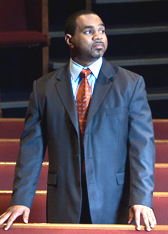© 2012 The Texas Lawbook.
By Mark Curriden, JD
Senior Writer for The Texas Lawbook
The day Wayne Watts took over as the new general counsel at AT&T in 2007, his predecessor gave him some sobering news:
“Wayne,” he said, “you’re not going to have as much fun in this job as I did.”

“He was right,” Watts says five years later. “This is still a great job, but the position of general counsel has changed dramatically during the past decade. Some of the changes are good and necessary.”
The top lawyers at in-house corporate legal departments across Texas say that their job, the responsibilities that come with the position and the influence they wield within the business have expanded tremendously during the past few years.
Many general counsels say that only a few years ago, they were relegated to a separate floor in their building, isolated from the decision-making process, and then called upon only when other executives or the board faced a legal crisis.
That’s no longer the case.
Today, general counsels find themselves involved in every aspect of their corporate operations, from helping determine a company’s strategic growth plans and analyzing risk factors to framing their business’ public image and even becoming a profit center.
“The job has gone from being just a legal adviser to being much more of a business role,” says Christopher Willis, the general counsel and vice president of human resources at Dallas-based Interstate Batteries. “CEOs and business leaders have seen the value of a general counsel’s contribution and there’s now an expectation that the corporate legal team have an in-depth business knowledge that wasn’t there only a few years ago.”
The SMU Dedman School of Law and The Texas Lawbook recently surveyed more than two-dozen of the school’s graduates, including Watts and Willis, who now lead large and small corporate legal departments in Texas. All 26 general counsels surveyed reported that their duties and responsibilities have expanded in recent years.

Melanie Wright, the general counsel of Dallas-based Fujitsu Network Communications, says the past corporate legal departments where she worked were “pretty much isolated” from the departments on the operational and finance sides.
“The documents came in and the documents went out,” says Wright, who was previously an assistant general counsel at Greyhound and Southland Corporation. “It’s definitely not like that any more.”
Two-thirds of the general counsels in the SMU Dedman report said that the passage of federal corporate compliance laws, starting with the Sarbanes-Oxley Act in 2002 and followed by the Dodd-Frank Wall Street Reform and Consumer Protection Act, are partly or mostly responsible for the change.

“No doubt about it, Sarbanes-Oxley and Dodd-Frank have had a far-reaching and significant impact on the role of the general counsel in corporate America,” says Jim Baldwin, who became general counsel and executive vice president of Dr Pepper Snapple Group in Irving in 2002.
“Today, GCs are involved in nearly every aspect of a business’ operation and those two laws are a big reason,” he says.
Smaller corporate in-house legal departments have not been immune.
“I’ve basically changed positions – from lawyer to a businesswoman,” says Dena DeNooyer Stroh, who took over as general counsel at Murchison Oil & Gas earlier this year.

“My job is to identify problems early so that I can nip them in the bud or fix it before it becomes a bigger problem,” says Stroh, a former trial lawyer at Gruber Hurst Johansen Hail Shank who now operates a one-person corporate legal department. “That requires me to know my company and what we’re involved in.”
Wright, the general counsel at Fujitsu, says she started working “side-by-side with the sales guys negotiating contracts” soon after she was hired as the subsidiary’s one-person legal department in 1992.
“I believe in having more contact with business colleagues on the front end, which is much more fun,” she says. “It’s much less fun when you go into a situation on the back end when there’s already a crisis.”
Darwin Bruce, who became the general counsel of The Potter’s House, a non-profit entity, in 2004 and added the title of chief operating officer in 2007, says the GC has become “more of a strategist.”

“The general counsel now does a lot more managerial work that has nothing to do with the law,” says Bruce. “Many GCs have redefined their role. As the marketplace becomes more competitive, executives and directors realize they can get more than just legal advice from their general counsel.”
A good example of this trend is Robert Hart. For more than a dozen years, Hart was entrepreneur Mark Cuban’s personal lawyer. Then, when Cuban sold Broadcast.com to Yahoo, Hart became general counsel of Cuban Companies, which includes the Dallas Mavericks.
“We’re a family holding company, but we have grown a lot and have a lot of different business interests,” he says. “We have more than 70 companies that make up seven or eight different businesses. At this point, I act as much as a chief operating officer as I do a general counsel.
“The legal side of things has much more impact on the business decisions,” says Hart.
Several general counsels in the SMU Dedman survey reported that the globalization of their businesses also has contributed to the evolution of their corporate legal departments. They point to the aggressive approach the U.S. Securities and Exchange Commission is taking in the enforcement of the Foreign Corrupt Practices Act.
“From FCPA and developing commercial and residential real estate laws around the world to fundamental changes to the attorney-client privilege and issues involving translations, lawyers working with international companies face new and unique challenges,” says Susan Aldridge, the general counsel and senior vice president of Dallas-based Rosewood Hotels.
“As the business becomes more global, we need to be aware of other countries changing or reforming their laws,” says Aldridge, who was in the corporate legal department at ExxonMobil before joining Rosewood Hotels in 2000.
Nearly all of the general counsels in the SMU Dedman survey said that the evolution of their position also has significantly impacted how they work with outside counsel, but they say that many long-time lawyers have yet to adjust.
Several of the GCs said that they face pressure to conform their legal teams – in-house and outside counsel – to the culture and policies of their companies. As a result, they are putting an increasing emphasis on diversity, pro bono and other factors that their businesses encourage throughout other departments. (Please see The Texas Lawbook article, “Corporate Counsels Increase Pro Bono and Pressure Outside Firms to Do So, Too.”)
“Many of the lawyers who come to us seeking work don’t understand how fundamentally different our landscape is today,” says Watts, who oversees more than 450 lawyers in-house at AT&T. “They haven’t recognized how our job has changed and as a result, they haven’t learned to change with us.
“Lawyers who want AT&T to hire them for our legal work need to know more than just the law – they need to learn our business and our specific legal needs,” he says.
© 2012 The Texas Lawbook. Content of The Texas Lawbook is controlled and protected by specific licensing agreements with our subscribers and under federal copyright laws. Any distribution of this content without the consent of The Texas Lawbook is prohibited.
